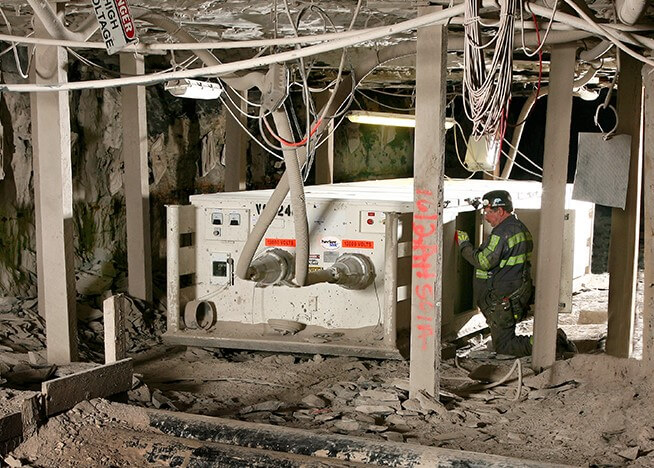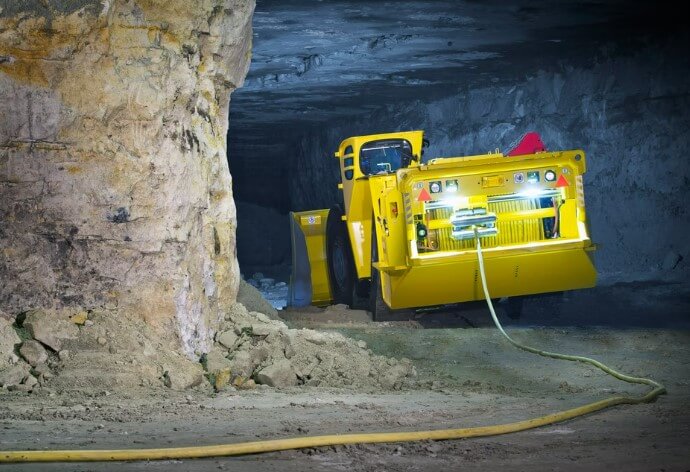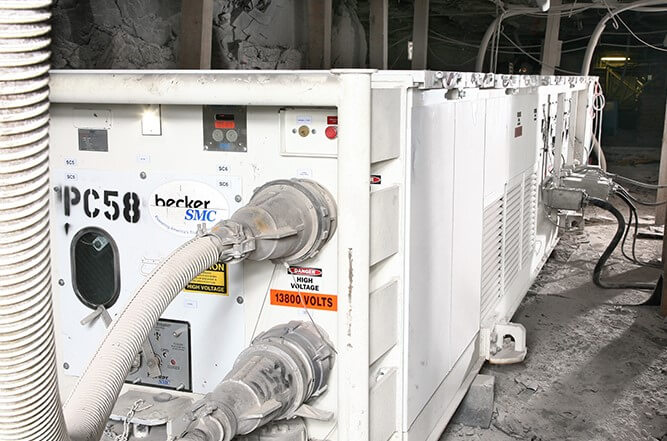Electrical equipment plays a vital role in the smooth operation of industrial processes, ensuring efficiency, safety, and productivity. In industries like mining, where the environment is harsh and the demands on equipment are high, regular maintenance becomes even more crucial. Becker Mining USA, a leader in providing mining solutions, understands the importance of electrical equipment maintenance and offers insights into how often it should be performed to ensure optimal performance and safety.

GET IN TOUCH
In a hurry? Call us at 276-285-3841
Understanding Electrical Equipment Maintenance
Electrical equipment maintenance involves regular inspections, testing, cleaning, and repairs to ensure that electrical systems and machinery function correctly and safely. This process helps to prevent unexpected failures, extend the lifespan of equipment, and maintain operational efficiency. The frequency of maintenance depends on several factors, including the type of equipment, its usage, the operating environment, and manufacturer recommendations.
Why Regular Maintenance is Crucial
1. Safety: Electrical equipment failures can lead to dangerous situations such as fires, electric shocks, and explosions. Regular maintenance helps identify and rectify potential hazards before they escalate.
2. Efficiency: Well-maintained equipment operates more efficiently, reducing energy consumption and operating costs. Inefficient equipment can result in higher electricity bills and increased wear and tear.
3. Longevity: Regular maintenance extends the lifespan of electrical equipment by preventing major breakdowns and ensuring components are in good working condition. This reduces the need for costly replacements and downtime.
4. Compliance: Adhering to maintenance schedules often ensures compliance with industry regulations and standards, which is crucial for avoiding legal and financial repercussions.
Factors Influencing Maintenance Frequency
1. Type of Equipment: Different types of electrical equipment have varying maintenance needs. For example, transformers, circuit breakers, and motors each require specific maintenance schedules based on their design and usage.
2. Operating Environment: Harsh environments, such as those found in mining operations, can accelerate wear and tear on electrical equipment. Dust, moisture, and temperature extremes can impact the performance and reliability of equipment.
3. Usage: Equipment that operates continuously or under heavy loads will require more frequent maintenance compared to equipment used intermittently or under lighter loads.
4. Manufacturer Recommendations: Equipment manufacturers provide maintenance guidelines based on their expertise and knowledge of the equipment. Following these recommendations is essential for optimal performance and warranty compliance.

GET IN TOUCH
In a hurry? Call us at 276-285-3841
Maintenance Schedules for Common Electrical Equipment
1. Transformers:
- Monthly: Visual inspections for leaks, oil levels, and physical condition.
- Annually: Detailed inspections including oil testing, thermal imaging, and electrical testing.
- Every 3-5 Years: Comprehensive maintenance including internal inspections, oil regeneration, and replacement of deteriorated components.
2. Circuit Breakers:
- Monthly: Visual inspections for signs of wear, overheating, and proper operation.
- Annually: Testing of trip functions, cleaning, and lubrication.
- Every 3-5 Years: Detailed inspections and replacement of worn parts.
3. Motors:
- Monthly: Visual inspections and basic operational checks.
- Quarterly: Cleaning, lubrication, and electrical testing.
- Annually: Comprehensive maintenance including bearing checks, insulation resistance testing, and performance evaluations.
4. Switchgear:
- Monthly: Visual inspections for signs of damage or corrosion.
- Annually: Cleaning, lubrication, and functional testing of components.
- Every 3-5 Years: Detailed inspections and refurbishment or replacement of components as needed.
Implementing a Maintenance Plan
Creating and implementing a comprehensive electrical equipment maintenance plan involves several steps:
1. Inventory and Assessment: Begin by cataloging all electrical equipment and assessing their current condition. This helps prioritize maintenance tasks and allocate resources effectively.
2. Develop a Schedule: Based on manufacturer recommendations and the specific needs of your equipment, develop a maintenance schedule that outlines tasks, frequencies, and responsible personnel.
3. Training and Resources: Ensure that maintenance personnel are adequately trained and equipped with the necessary tools and resources to perform their tasks safely and effectively.
4. Documentation and Tracking: Maintain detailed records of all maintenance activities, including inspections, tests, repairs, and replacements. This documentation helps track the performance and history of equipment, facilitating informed decision-making.
5. Review and Adjust: Regularly review the maintenance plan and adjust it based on equipment performance, emerging technologies, and changes in operational requirements.
Advanced Maintenance Strategies
1. Predictive Maintenance: Leveraging advanced technologies such as sensors, IoT (Internet of Things), and data analytics, predictive maintenance involves monitoring equipment in real-time to predict failures before they occur. This approach minimizes downtime and optimizes maintenance efforts.
2. Condition-Based Maintenance: Instead of following a fixed schedule, condition-based maintenance involves performing maintenance tasks based on the actual condition of the equipment. This method relies on continuous monitoring and diagnostic tools to assess the equipment's health.
3. Reliability-Centered Maintenance (RCM): RCM focuses on identifying and addressing the most critical equipment based on their impact on operations and safety. This strategy helps prioritize maintenance resources and efforts where they are most needed.

GET IN TOUCH
In a hurry? Call us at 276-285-3841
The Role of Becker Mining USA in Electrical Equipment Maintenance
Becker Mining USA offers a range of solutions and services to support the maintenance of electrical equipment in mining and other industrial sectors. Their expertise and advanced technologies help clients achieve optimal performance, safety, and efficiency.
1. Consulting and Assessment: Becker Mining USA provides consulting services to assess the condition of electrical equipment and develop customized maintenance plans.
2. Advanced Diagnostic Tools: Utilizing cutting-edge diagnostic tools and technologies, Becker Mining USA helps clients monitor and analyze the health of their equipment in real-time.
3. Training and Support: Becker Mining USA offers training programs to equip maintenance personnel with the skills and knowledge needed to perform effective electrical equipment maintenance.
4. Comprehensive Solutions: From inspection and testing to repairs and upgrades, Becker Mining USA delivers comprehensive maintenance solutions tailored to the specific needs of each client.
Conclusion
Regular electrical equipment maintenance is essential for ensuring safety, efficiency, and longevity in industrial operations. By understanding the factors that influence maintenance frequency and implementing a structured maintenance plan, businesses can prevent unexpected failures, reduce operational costs, and maintain compliance with industry standards.
Becker Mining USA's expertise in electrical equipment maintenance provides valuable support to industries, particularly in challenging environments like mining. Their advanced solutions and services help clients achieve reliable and efficient operations, contributing to overall business success.
Products We Offer:
- Explosion Proof Equipment
- Transformers
- Arc Guard
- Longwall Electrical Systems
- Capacitor Trip Devices
- Electrical Equipments like capacitor banks, switch houses, junctions, and splice boxes.
Power up your productivity with Becker Mining's ground fault relays - the reliable and efficient solution for all your power distribution needs. Call us today!
GET IN TOUCH
In a hurry? Call us at 276-285-3841